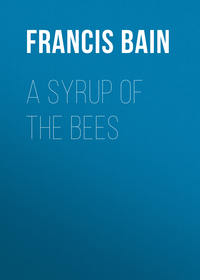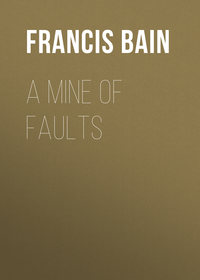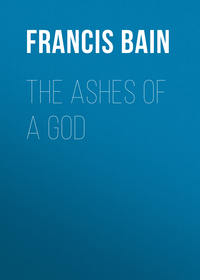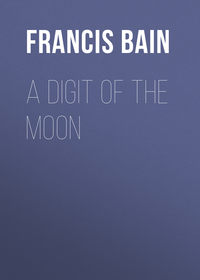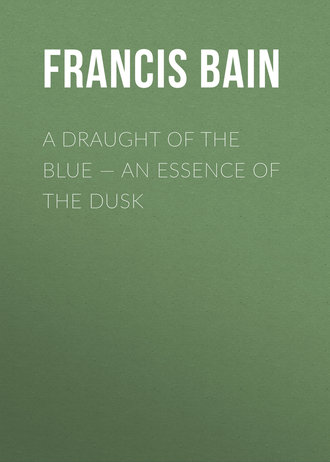 полная версия
полная версияA Draught of the Blue – An Essence of the Dusk
Then she said: Far away in the north, on the edge of the wood, there is a King, Rudrálaka by name: and one day he will come into the wood and claim me for his bride. For so it was revealed to my father, when he enquired of my mother, long ago, to whom he should give me, when I was of age. And my mother went to Indra, and asked him; and Indra asked Maheshwara, who knows the present, the future, and the past. And how can he be deceived, or how can that which he foretold fail to come to pass? And now I see very well that it was a crime in me, ever to have had anything to do with thee: and in the madness produced by thy appearance, I have acted in a manner unworthy of my caste: for I am the promised bride of another man. And now there is nothing but for thee to go away as quickly as thou canst, and forget that ever thou didst see me in the wood.
And the King stood still behind her as she spoke, filled with amazement and relief. And he watched her weeping, with pride and delight; and he said to himself: Certainly she is of good family, and its very crest-jewel, and like a diamond of pure water; for she will not come away with me, but is faithful to her duty, even against her will. But once again I will test her, like gold in the fire, before I tell her who I am. But what, if she does not stand the test? Why, then I will forgive her: for how could I blame her for yielding and allowing herself to be defeated in my cause? But if she stands firm, and resists me, then I shall know that my pearl is priceless, and my emerald without a flaw.
And then he said aloud: Out upon this Rudrálaka, for he is like a cloud that has suddenly intervened, to cast a dark and horrid shadow over our sunny garden of delight, and an obstacle which only the lord of obstacles can move. And what is this Rudrálaka, to prevail over the lord of the elephant face in conjunction with the God who has flowers for his bow?32 And cannot I persuade thee to forget, one whom thou hast never even seen, and who is to thee nothing but a name? And who knows even whether he exists at all, and is not merely a dream of thy father's, an illusion brought into his aged head by weakness arising from severe emaciation? And wilt thou then sacrifice thy happiness and mine to a dream? And he waited for a moment, and he said: See, thou art undecided, wavering between thy duty and my love, like a flower shaken by opposing breezes. A flower thou art, and a flower shall decide for thee. And this red lotus, which has lingered so long near thy heart that it must know it, and resembles it in colour, shall be the oracle of thy destiny. And he leaned over her, and took very gently, without touching her, the lotus on her breast, and drew it away, while she offered no resistance. And he said: One petal is for thee, and one for me. Now will I pluck the petals one by one, first for thee, and second for myself. And if thine is the last, thou shalt stay, and I will go away without thee: and if mine, thou shall cast away Rudrálaka, like the stalk when it is stripped of the leaves, and forget him, and come with me and be my wife.
And then, one by one, he began to strip the red lotus of its leaves, and let them fall upon the ground, saying as he did so: This, for thee: this, for me. And as he counted, she watched him, with tears sparkling in her eyes, till only one remained. And he held it out towards her, saying, with a smile: This, for me. And then, all at once she broke into a laugh that was mingled with sobs and sorrow and indignation. And she exclaimed: Ah! thou art cunning, and thou art very cruel. Thou knewest very well that there were but sixteen petals on the lotus,33 and that thine must be the last. And thou art unkind, prolonging my torture, and striving, by unfairness, and temptation, to recall my resolution: yet if I did, thou wouldst only think the worse of me, even though thine would be the gain. Go, go quickly, for I may not come away with thee. And as she spoke, she turned paler than the Kumuda that opens in the dusk, and staggered. And she leaned against a pillar of the tree, and her eyes shone in the moonlight, and she said very quietly: Go now, take thy horse, and go away; and go very quickly: for the decision is too hard for me, and I cannot bear it very long. And it would be a stain on thee, to tempt any longer the wife of another man.
And the King gazed at her, struck with admiration and amazement. And he said to himself: Ha! where is the simple forest maiden who sat to listen at my feet, for in her place I see one whose virtue I have roused, and who orders me to go with the dignity of an insulted queen? And I stand before her like a culprit, rejoicing inwardly at the failure of my own attempt. And as he stood, lost in wonder at her moonlit unearthly beauty, and ready to fall and worship at her feet, suddenly there fell upon his ear a murmur and a rustle in the air. And he listened, and all at once the horse began to neigh; for it was the trample of horses and the thunder of their hoofs. And as they looked, lo! a band of horsemen issued from the wood, and came towards them; and in a moment they were surrounded by the attendants of the King.
VIIIQUINTESSENCEAnd then, with a cry, Alichumbitá sprang back, and stood in dismay, on the very brink of the river, looking from the King to his followers and back again. And the King watched her with ecstasy, and he said to himself: Now could I almost forgive my attendants for this exasperating interruption. For she looks like a stag whose retreat has been cut off by the hunters, standing at bay, with every graceful limb quivering and poised on the very verge of instant action, striking terror as it were into even the hearts of her pursuers by her magnificent defiance, and cowing them by the startled pride of her haughty and yet timid eyes, and holding them as it were spellbound by the beautiful agitation incarnate in her form, and reaching its supreme expression in the deep heave of her glorious bosom. And I can see that my followers are divided in their minds: for all their respect for me cannot prevent them from transferring their allegiance to her, and doing homage to the true deity manifest in her lovely shape. Ha! beauty is the real ruler of the three worlds, and all others are usurpers and pretenders and emptiness and show. For if I were unknown to them, my followers would pay me no regard at all: whereas they have all become slaves to my mistress, as I did myself, by a single glance at her goddess mien.
And then, as his attendants dismounted from their horses, and stood before him in attitudes of respect, the King called to his chief huntsman. And he said to him: Tell this lady who they are that stand before her. Then that huntsman said with deference: Lady, we are a very few of the devoted followers of King Rudrálaka: and having hunted for him all day long, we pray now to be forgiven, if we have succeeded at last in finding him only to be troublesome by our intrusion. And the King said: Now go, taking my horse; and wait for me a little way off, yet not beyond a call. Then those huntsmen all retired, stealing glances as they went at the King's companion, and vanished again within the wood.
And when they were gone, the King stood awhile in silence, gazing with affection at Alichumbitá, who was lost in confusion and astonishment. And then he said: Blue-eyes, now thou hast heard. And will thou now do thy duty, and obey thy father, and justify the Great God's foresight, and come away with thy true husband and be his Queen? Or hast thou still a horror of King Rudrálaka? Ah! forgive me for trying thee, a thing which I cannot, nevertheless, regret. For thou wert proof against my bribes, and hast doubled the worth of thy wondrous beauty by exhibiting the quality of its inner soul. And she stood for a moment, changing colour, first red, and then white, as if the blood which had mantled in her face had like those huntsmen withdrawn again into the wood of her heart from modesty at the sight of him. And as he took her by the hand, she hid her face against his breast, laughing as she wept, and raining as it were nectar with her tears into the heart of the King. So they stood together in the silence, while the King stroked her dark hair gently with his left hand. And at last he said: Sweet little Queen, thou hast seen men enough now, for one day. Know, that they are all thy servants, from the King down.
And suddenly, she raised her face, and looked at him with eyes that were full of smiles and tears and shyness and playfulness and blue colour and the tremble of the moon. And she said: Canst thou tell of what I thought, as I looked upon all those men? And he said: Of what? Then she said: They seemed to me to be worthy only to be servants to such as thee: and I saw that it was as I had thought, and that mine was a man even among men. And then she stopped, and she said again in a low voice: Now, if thou wilt, I wilt give thee an answer to that question of thine which I left unanswered. And the King said: Which? And she said: Dost thou not remember? Thou didst ask me, what was he like whom I would follow through the world. Now canst thou guess, or shall I tell thee? And the King leaned over her, bending her a little back as she lay in his strong arms, and as she closed her eyes, he kissed her trembling lips, which shrank a little from the touch of his own. And after a while, he looked, and saw heaven reflected in the eyes of his wife beneath him, and beyond them, their two shadows, clinging together, black on the moonlit ground. And suddenly he pointed, and said to her: See, thy wish is gratified, and thy shadow has come to life. And she put both her arms round his neck, and drew him down, and kissed him again. And she said: It is not my shadow, but it is I myself that have come to life, and thou art the life that has come to me. And hadst thou gone away without me, I should not be living now: for I would have thrown myself into the river, the moment I was alone. And the King said, with a smile: Did I not tell thee, that I feared lest thou shouldst plunge into the river? And she laughed, and said: Let me go, and see. And they looked at each other for a moment, and laughed without a reason. And they embraced each other passionately, and the King said: Give me now another kiss. So she did. And he said: Now another, and another. And so they continued, she giving and he receiving; while the night passed away.
And at last he said: Now I must carry my property away with me, for thou art no longer thy father's but mine. And we will come again, and tell thy father, but in the meantime, I will take thee, for never will I part from thee again. And she said: Do with me as thou wilt: so only that thou dost not leave me.
Then he said: Blue-eyes, thou hast seen a horse to-day for the first time, and now thou shalt ride one also. And she said with a smile: But how can I ride without falling? Then he said: Fear nothing. Dost thou think that I would trust my treasure on a horse alone? But that good horse, which brought into the wood to-day a single rider, shall carry back a pair. And he has run a race to-day that will have robbed him of his fire. Wait, now, there, for a little while, till I return: and beware! that thou dost not jump into the water. And as she smiled, they kissed each other again with insatiable lips. And then he went towards the wood, and shouted for his men. And when they came, he gave them orders, and they brought his horse, and prepared him as he said, placing for her reception soft rugs upon his back. And the King mounted, and he said: Watch me when I go, and follow me at a distance. And then he rode back to where she waited for him by the river bank.
Then he came close up to her and said: Give me now thy left hand, and place thy little foot on mine, and I will lift thee up before me. So she stretched out to him her hand, shrinking from the horse as it tossed its head and trampled the ground, and seeking with timidity for an opportunity to place her foot upon his own. So as she waited, gazing at the horse with doubtful eyes, the King laughed. And he exclaimed: This way will not do, and now I must make another. And suddenly, he turned the horse towards her with his knee, and letting fall the reins, he leaned from the saddle and caught her in his arms, and lifted her up before him. And at that moment the horse started off, and the King felt for the reins with his left hand, holding her in his right arm, while she clung to his neck for fear of falling. And for a while the King let the horse go, for the sweetness of her terrified embrace was such that he said to himself: Ah! could this only last for ever!
Then after a while, he checked the horse, and brought him to a walk. And as they went slowly through the forest, now in the shadow and now in the moonlit glades, he let the reins fall on his horse's neck, and took his wife in both his arms, kissing her lips that kissed him again, and murmuring inarticulately words without a meaning, and filling his soul to the very brim with the intoxication of her shadowy eyes and the perfume of her hair that hung about her escaping from its knot. And suddenly, there came as it were night over his eyes. And he felt her slipping from his embrace, which closed in vain on empty air. And before him her face wavered and flickered, and it lit up like a dying lamp for a single instant with vivid brightness, and then went out and disappeared.
IXECHOES AND REGRETSAnd in an instant, he saw before him, no wood and no horse. But he found himself floating as at first like a cloud in the blue sky, with his wife still in his arms. And he said: Ha! how is this? I lost thee but now in the forest, and here we are together in the sky. But I seem to have but just awoken from a dream. And wert thou then with me in my dream? Then she said: Yes. And as she spoke, she caught him in a convulsive grasp, for she knew that the end was come. And as she gazed at him with agony in her eyes, he said: Ah! dost thou remember how we rode together, and lingered as I brought thee home, in that delicious wood? Dost thou remember how we laughed, and how we wept for joy? Dost thou remember how at last thou didst fall asleep from sheer fatigue, and I carried thee sleeping home? Dost thou remember how I sat and watched thee in thy sleep, and how at thine awakening thou wast frightened, forgetting where thou wert? Dost thou remember, how everything was new to thee, and strange, and how all day long I laughed for joy to see thee, my plaything and my pretty child? Dost thou remember how we played at King and Queen, counting the whole world as a straw, and never parting, night or day? Dost thou remember how thou wast by day, the sun, and by night, the moon, of all the hours, lighting up my gloomy palace with the blaze of thy beauty and the soft light of thy love? Dost thou remember how thy voice echoed in my empty halls, and thy laughter filled up all its corners with music and delight? Dost thou remember how I used to follow thee about from room to room, and how sometimes, rogue! thou wouldst hide from me, to drive me to despair? Dost thou remember that last night, when I parted from thee to go to war, leaving my soul behind? But ah! alas! for the day, when I rode like a whirlwind into the court, and they told me of thy death!
And as he spoke, there shot through his heart a mortal pang like a sharp sword. And at that instant, his wife vanished, and he felt himself falling, falling like a heavy stone, down through empty space. And he uttered a fearful cry, for he understood that he was returning swiftly back to earth. And struggling with vain and frenzied grief and rage, he screamed aloud, in the ecstasy of despair: Ah! my wife! my wife! Ah! not to earth! ah! not again! not without thee! not without thee!
Epilogue
The Break of a Heart
EpilogueBut in the meanwhile, the King's attendants sat on in the palace hall, waiting while the King slept. And he slept on, while they waited, and they watched him lying very still, on his couch upon the floor.
So as they watched and waited, the day slowly passed away. And hour succeeded hour, as the sun moved steadily on to his home behind the western hill. And all the while, the old merchant remained motionless in his place, stiller even than the sleeping King, for he never even breathed. So they watched and waited on, till for very weakness their souls were almost parting from their bodies, and slumber began to steal over their eyes. And day began to turn to twilight, and the darkness began as it were to gather and creep out of the corners of the room, in which was heard no sound, save the deep breathing of the sleeping King.
And suddenly, like a flash of lightning, there rang through that silent room a cry, that pierced those weary watchers' ears like the point of a molten spear; for it resembled the cry of a woman, forced by the agony of abject fear into the very mouth of death. And as they bounded to their feet, and looked towards the King, there burst from his heart another cry, and yet another. And they saw his body, like a worm, writhing and quivering as it lay; and all at once he leaped from the couch and stood erect, and staggered across the floor.
And he stood there, swaying like a reed, and gazing straight before him, seeing nothing, with open eyes, that were dazed with the depth of their own despair. And every limb of his body shook, and drops of sweat stood on his brow, and his breath came hard and fast and hoarse, from a chest that heaved and trembled like the bosom of a frightened girl. So he stood, while they all watched him, silent and aghast, and listening as it were to the beating of their own hearts.
So as they watched him, holding their breath, he began to wail like a child. And he wept aloud, with great sobs, that shook him from head to foot, till the tears rose and stood in the eyes of all that saw him, as if drawn from their sources by the sight of his own, which fell on the ground like rain. And all at once, he stopped short. And he looked up, and stared before him, with weeping and imploring eyes, that hunted as it were among them for something they could not find.
And as they watched him silently, spellbound by those troubled eyes, they saw their expression alter, and over them pass a dreadful change, till like a fire they shone with scorn and hatred and disdain. And he stepped forward, and spat at them all as they stood before him, stretching out both his arms. And as he did so, his gaze was as it were caught by the glitter of the glancing gems that hung upon his wrists. And he looked at them for a moment, and suddenly he took those jewels and tore them from his hands and arms, and from his neck and breast. And he broke them all to pieces, snapping asunder cords and chains, and tossed all over the palace hall pearls and rubies and all the rest, till they rattled on the floor like hail. And when he had no more jewels to tear, he fell upon his clothes; and he stripped them off him with giant strength, and rent them into bits and shreds, till he stood before them breathing hard, dripping with sweat, and bleeding, as naked as he was born.
And as his eyes ran over them all as they shrank before him, they fell suddenly upon the old merchant, who sat still in the self-same place, never having stirred. So when the King saw him, suddenly he began to laugh, with laughter that was divided from sobbing by only a single hair. And he exclaimed: Ha! old vendor, art thou there, waiting for thy price? For now my dream is over, and it only remains to pay. Take for thy dream, my whole kingdom, and all that it contains. And even so, thou art unpaid: for such a dream could not be ransomed, even by the three great worlds.
And then, with anguish in his eyes, he threw his arms to heaven. And he uttered a long low cry, like the howl of a dog whose lord is dead, and turned, and ran out of the hall.
And they stood, like pictures on a wall, while the sound of his disappearing steps died away upon their ears. And then in an instant, the hall was filled with tumult. But the King's physician rushed forward. And he exclaimed: The King's frenzy has come again, and much I fear, that it will never again depart. But as for this old merchant, who has given the King a deadly drug, let him not escape. Seize him, and let him answer for the madness of the King.
Then the guards surrounded that old merchant, but he never moved or stirred. And suddenly, seized with anger, the captain of the guards stooped down, and seized him by the beard, to drag him roughly to his feet. And lo! that old man's head came off his neck, and hung by the beard in his hand. And they looked, and saw, that the body was hollow, and empty, and without a soul, like the trunk of a withered tree.
Then they gazed at one another, with open mouths, and eyes that were dull with fear. And after a while, the chaplain spoke. And he said slowly: Surely this was an old Rákshasa, playing with the King's life. Or who knows? For it may be, the Deity took this form, to punish the King, by means of a dream, for the sins of a former birth.
An Essence of the Dusk
More generally known, perhaps, than any other Hindoo legend, is the story of the demon, RÁHU, who brings about ECLIPSES, by devouring the Sun and Moon. For when the gods had upchurned the nectar, the delectable Butter of the Brine, Ráhu's mouth watered at the very sight of it: and "in the guise of a god" he mingled unperceived among them, to partake. But the Sun and Moon, the watchful Eyes of Night and Day, detected him, and told Wishnu, who cast at him his discus, and cut his body from his head: but not until the nectar was on the way down his throat. Hence, though the body died, the head became immortal: and ever since, a thing unique, "no body and all head," a byword among philosophers, he takes revenge on Sun and Moon, the great Taletellers, by "gripping" them in his horrid jaws, and holding on, till he is tired, or can be persuaded to let go. Hence, in some parts of India, the doleful shout of the country people at eclipses: Chor do! chor do!34 and hence, also, the primary and surface meaning of our title: A Digit of the Moon in the Demon's grip: in plain English, an eclipse of the moon. And yet, legend though it be, there is something in the old mythological way of putting the case, which describes the situation in eclipses far better than our arid scientific prose. I shall not easily forget, how, as we slid like ghosts at midnight, through the middle of the desert, along the Suez Canal,35 I watched the ghastly pallor of the wan unhappy moon, as the horrible shadow crept slowly over her face, stealing away her beauty, and turning the lone and level sands that stretched away below to a weird and ashy blue, as though covering the earth with a sepulchral sympathetic pall. For we caught the "griesly terror," Ráhu, at his horrid work, towards the end of May, four years ago.
But our title has yet another meaning underneath the first, for Ahi, the name employed for Ráhu (like all other figures in Indian mythology, he is known by many names), also means a snake. Beauty persecuted by a snake is the subject of the story. That story will presently explain itself: but the relation between Ráhu, or eclipses, and a snake is so curiously illustrated by a little insignificant occurrence that happened to myself, that the reader will doubtless forgive me for making him acquainted with it.
Being at Delhi, not many years ago, I seized the opportunity to visit the Kutub Minár. There was famine in the land. At every station I had passed upon the way were piled the hides of bullocks, and from the train you might see their skeletons lying, each one bleaching where it died for want of fodder, scattered here and there on the brown and burning earth; for even every river bed was waterless, and not a single blade of green could you descry, for many hundred miles. And hence it came about, that as I gazed upon the two emaciated hacks that were to pull me from the station, a dozen miles out, and as many more back, I could bring myself to sit behind them only by the thought that thereby I should save them from a load far greater than my own, that would have been their fate on my refusal. Therefore we started, and did ultimately arrive, in the very blaze of noon.
The Kutub Minár is a needle of red stone, that rises from a plain as flat as paper to a height of two hundred and fifty feet; and you might compare it, as you catch, approaching, glimpses of it at a distance, to a colossal chimney, a Pharos, or an Efreet of the Jinn. The last would be the best. For nothing on the surface of the earth can parallel the scene of desolation which unrolls itself below, if you climb its 380 steps and look out from the dizzy verge: a thing that will test both the muscle of your knees and the steadiness of your nerves. Round you is empty space: look down, the pillar bends and totters, and you seem to rock in air; you shudder, you are falling: and away, away below, far as the eye can carry, you see the dusty plain, studded with a thousand tombs and relics of forgotten kings. There is the grim old fortress of the Toghlaks: there is the singular observatory of the rájá astronomer, Jaya Singh: and there the tomb, Humaioon's tomb, before which Hodson, Hodson the brave, Hodson the slandered, Hodson the unforgotten, sat, for two long hours, still, as if man and horse were carved in stone, with the hostile crowd that loathed and feared him tossing and seething and surging round him, waiting for the last Mogul to come out and be led away. The air is thick, and sparkles with blinding dust and glare, and the wind whistles in your ears. Over the bones of dynasties, the hot wind wails and sobs and moans. Aye! if a man seeks for melancholy, I will tell him where to find it – at the top of the old Kutub Minár.


